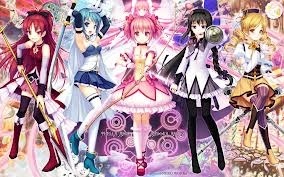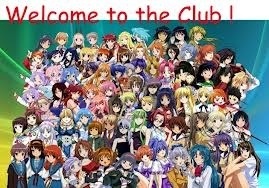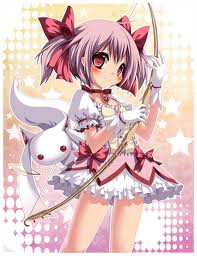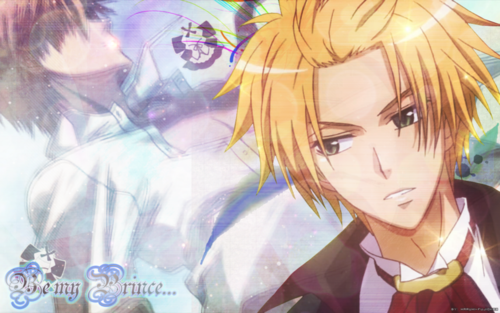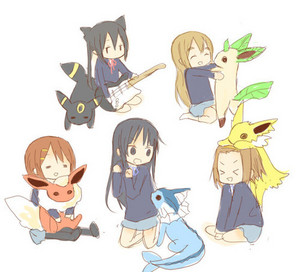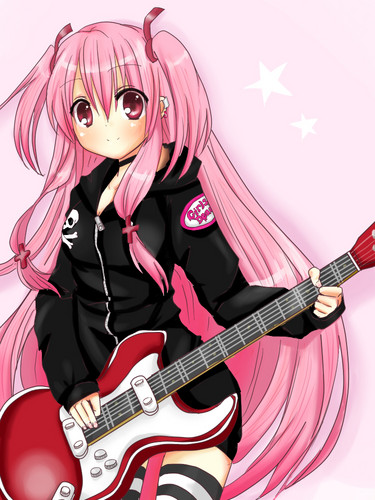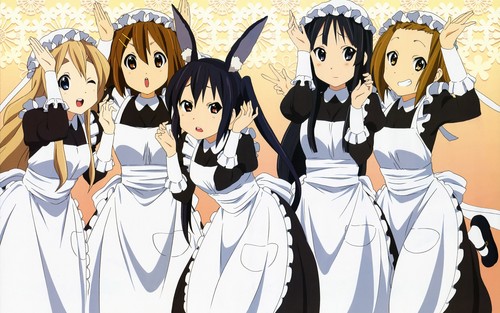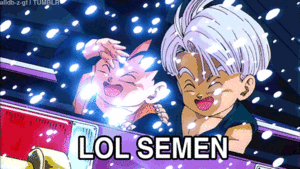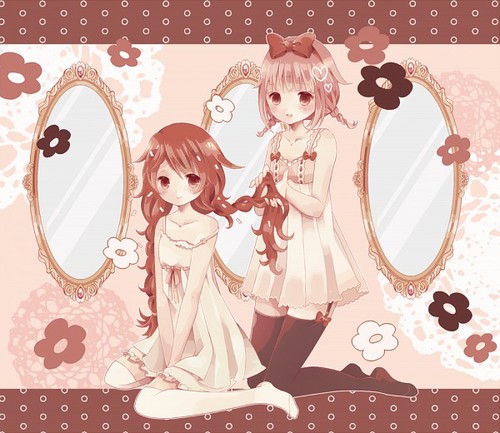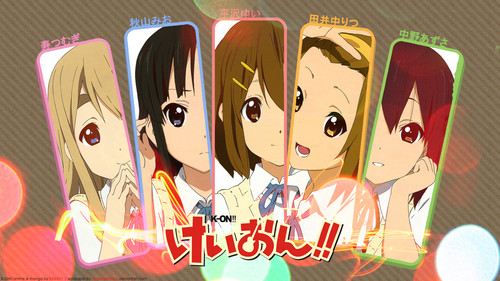~What is animê exactly?~
The word animê -- pronounced "ah-knee-may" -- is an abbreviation of the word animation. In Japan, the word's used to refer to all animation. Outside of Japan, it's become the catch-all term for animation from Japan.
For decades, animê was produced por and for Japão -- a local product, with a distinct look-and-feel to not just the artwork but the storytelling, the themes, and the concepts. Over the last forty years, though, it's become an international phenomenon, attracting millions of fãs and being translated into many languages. A whole generation of viewers in the West have grown up with it and are now passing it on to their own children.
~What is it that makes animê so special?~
Most animê fãs can sum this up in two words: "It's different." animê is as unlike most American desenhos animados as, say, batman and Spider-Man are different from the comics that run in daily papers. The differences show up in many ways.
⚫Artwork. animê art styles range from the flamboyant and outlandish (Samurai Champloo, FLCL) to the simple and direct (Azumanga Daioh!). That said, even shows with mais "basic" artwork can still be visually striking; animê finds ways to make everything look fresh and new.
⚫Storytelling. animê doesn't shy away from epic storylines, which can run for dozens (sometimes hundreds) of episodes. The best anime, though, no matter what their length, all demand great emotional involvement from the viewer.
⚫Breadth of material. The sheer range of animê shows out there means a viewer of most any other kind of TV or filmes can find an animê series that reflects her interests: hard SF (Planetes), romantic comedy (Fruits Basket), CSI-style crimefighting (Ghost in the Shell: Stand Alone Complex), female empowerment (Nana), even adaptations of classic literature (Gankutsuou: The Count of Monte Cristo).
⚫Cultural nuances. Japan's history, language and worldview are woven into a great deal of animê on many levels. Some shows are takeoffs on Japanese history (Sengoku Basara) or raid Japanese mythology for story ideas (Hakkenden, Hell Girl). Even shows that are outwardly non-Japanese in their presentation (Claymore, Monster) have tinges of a Japanese sensibility to them.
What's most striking is how anime's impact is coming full circle. Some recent American cartoon productions, like Avatar: The Last Airbender, are openly inspired por animê itself, and live-action língua inglês versions of animê titles are starting to come into production.
~Is animê a genre?~
Because all things animê tend to be lumped together, it's tempting to think of animê as a genre. It isn't -- no mais than animation itself is a genre, but rather a descrição of how the material is produced. animê shows, like books or movies, fall into any number of existing genres: comedy, drama, sci-fi, action-adventure, horror, and so on.
The word animê -- pronounced "ah-knee-may" -- is an abbreviation of the word animation. In Japan, the word's used to refer to all animation. Outside of Japan, it's become the catch-all term for animation from Japan.
For decades, animê was produced por and for Japão -- a local product, with a distinct look-and-feel to not just the artwork but the storytelling, the themes, and the concepts. Over the last forty years, though, it's become an international phenomenon, attracting millions of fãs and being translated into many languages. A whole generation of viewers in the West have grown up with it and are now passing it on to their own children.
~What is it that makes animê so special?~
Most animê fãs can sum this up in two words: "It's different." animê is as unlike most American desenhos animados as, say, batman and Spider-Man are different from the comics that run in daily papers. The differences show up in many ways.
⚫Artwork. animê art styles range from the flamboyant and outlandish (Samurai Champloo, FLCL) to the simple and direct (Azumanga Daioh!). That said, even shows with mais "basic" artwork can still be visually striking; animê finds ways to make everything look fresh and new.
⚫Storytelling. animê doesn't shy away from epic storylines, which can run for dozens (sometimes hundreds) of episodes. The best anime, though, no matter what their length, all demand great emotional involvement from the viewer.
⚫Breadth of material. The sheer range of animê shows out there means a viewer of most any other kind of TV or filmes can find an animê series that reflects her interests: hard SF (Planetes), romantic comedy (Fruits Basket), CSI-style crimefighting (Ghost in the Shell: Stand Alone Complex), female empowerment (Nana), even adaptations of classic literature (Gankutsuou: The Count of Monte Cristo).
⚫Cultural nuances. Japan's history, language and worldview are woven into a great deal of animê on many levels. Some shows are takeoffs on Japanese history (Sengoku Basara) or raid Japanese mythology for story ideas (Hakkenden, Hell Girl). Even shows that are outwardly non-Japanese in their presentation (Claymore, Monster) have tinges of a Japanese sensibility to them.
What's most striking is how anime's impact is coming full circle. Some recent American cartoon productions, like Avatar: The Last Airbender, are openly inspired por animê itself, and live-action língua inglês versions of animê titles are starting to come into production.
~Is animê a genre?~
Because all things animê tend to be lumped together, it's tempting to think of animê as a genre. It isn't -- no mais than animation itself is a genre, but rather a descrição of how the material is produced. animê shows, like books or movies, fall into any number of existing genres: comedy, drama, sci-fi, action-adventure, horror, and so on.


